|
by Evan Cantor I grew up in an age when the idea of a rock band as a democratic unit or institution was very much in vogue. The Beatles, for instance, were just four happy-go-lucky guys who happened to luck into musical magic. The Grateful Dead was just one big happy family. The Eagles were an outlaw band of Jesse James’ musical heirs. I even thought The Monkees were a real band. These misconceptions were the result of successful image marketing and, in retrospect, we all know better. The Beatles were a Freudian stew of competing interests. The Grateful Dead were led by one particularly charismatic individual. The Eagles all hated one another and stuck around because of the money. The Monkees were little more than studio musicians with a rotating cast of vocalists, a formula used widely by Motown and Stax. The illusion of a democratic band unit was appealing, especially to the hippie generation espousing Woodstock, freedom, peace and love, but it was very rarely an actual reality, if ever. There was always a “leader of the band”. I never became one until Walls Of Genius was formed. Up until that time, I had been in any number of bands, all of which had dissolved primarily due to issues arising from poor leadership or lack of it entirely. Poor leadership itself was likely due to the fact that we were all young and inexperienced. Shaped by the illusions of our generation, we didn’t understand the need for leadership skills, how to provide them if we had known, nor how to respond when it appeared. Even the formation of Walls Of Genius was an organic process. In its earliest incarnations, Walls Of Genius was nothing more than casual jam sessions, a leaderless response against the traditional band unit as I had known it. But eventually it became ‘my’ band and I was (and remain, for better or worse) the undisputed leader of the band. Leading a band is fraught with obstacles, pitfalls and prat-falls. On one hand, it is an exercise in convincing others to manifest your personal vision. On the other, it is a means of encouraging and enabling others to contribute to something greater than the sum of its parts. At the end of the day, it is almost inevitable that leadership is an attempt to find a working middle ground between these two poles. If you are despotic about your vision, your collaborators will bristle, develop resentments and ultimately sabotage the product. If you allow your vision to be completely subsumed, this dynamic is reversed. The leader becomes resentful of collaborators’ demands, bristles at having to accommodate so many different interests and ultimately loses initiative as a result. When a band-leader is no longer motivated, the end is near unless leadership emerges from elsewhere. That’s how Ed Fowler and I morphed a dissolving new-wave band into the eventual Walls Of Genius. In those ‘lost’ years, between the dissolution of Walls Of Genius and its subsequent re-birth, I played in a number of bands where this dynamic was played out in different ways. Polyester Prophecy could have been a Walls Of Genius spin-off, as its primary feature was the incandescent guitar playing of WoG’s own Ed Fowler (“Red Ed”). In typical fashion, Polyester Prophecy started casually, a jam session suggested. I didn’t realize it at the time, but the de-facto leader of this group would be the drummer, who had no appreciation of Walls Of Genius, didn’t understand it. In Polyester Prophecy, we played what he would, or could, play, dictated by one part chops and one part perspective. His vision was focused on heavy-rock and death-metal, mine on folk-&-jam-rock. Meeting in the middle-ground of post-punk, we morphed Polyester Prophecy into Motosapien, wherein de-facto leadership fell onto my shoulders as the lead singer and primary song-writer. The dissolution of Motosapien a year later was due either to my failure as a band-leader or my failure to comprehend just how much the drummer wanted that role for himself. I know that my accepting the reins of leadership bumped up against his aggressive control issues, but I’m still not sure, to this day, what I did wrong. It must have been something. My drummer friend told me that the bassist and lead guitarist viewed me as a dilettante or diva, a perspective that mystified me. But they were suffering from limitations in both imagination and chops. What’s a band leader to do? After that, I joined Strange New Worlds, an all improvisational group that never played the same piece twice, combining elements of Miles Davis with Pink Floyd. The leader was clearly gifted keyboard artist Luke Palmer, who had placed the Craigslist ad seeking musicians in the first place. Although I got the gigs and drummer Eric Hoaglund recorded the massive studio improv sessions, it was clearly Luke’s show. His improv chops made him, in my eyes, a 20th century Amadeus. None of the three of us could have done SNW without the other two, but like Lola in “Damn Yankees”, what Luke wanted, Luke got. When Eric left for adventures south of the border, we never found another drummer to fit this mold. SNW finally dissolved when Luke declared that “playing with Bob just wasn’t fun”. Despite Bob’s monster chops, I had to agree. But it was already over, the leader no longer interested. At that point, I decided to return to my roots, to articulate a version of Gram Parsons’ Cosmic American Music and formed New Cosmic Americans. My vision was to create a folk-rock group playing all genres, from rock, jazz and soul, to bluegrass, country and fifteenth-century ballads. As the self-proclaimed creator of the project, I was the self appointed band leader. We sounded good and played a lot of gigs, but it wasn’t without its challenges. Our female vocalist would only sing jazz songs a certain way, the way she had learned them at lessons, had difficulty counting measures, refused to play incidental percussion and took forever to figure out harmonies that I thought should have been no- brainers. The percussionist refused to learn more bluegrass or country songs, overplayed and sang very little. The bass player was excellent, but didn’t sing, so my dream of three part harmony mostly dissolved. As the band-leader, I began to resent my cohorts as we devolved into an amalgamation of their interests. As the leader, I felt that they had every right to their desires. In the interest of pursuing my own vision, they needed to be kept happy, so we would pursue their interests as well as my own. But this meant going in directions that so diverged from my own that it became stressful for me. Was it still fun? Not as much as it should have been. A medical diagnosis gave me the perfect excuse to dissolve the band without further discussion. My current bar-band, the CBDs, functions more as a democratic institution than any other band I’ve ever been a part of. Clearly, as the most prolific song-writer in the group, the primary lead singer and ‘front man’, I am the de-facto leader of the CBDs. But we’ve been together in this incarnation for over 5 years and keep getting gigs. How come this band hasn’t dissolved after a year or two like all those others? I attribute the success and longevity of the band to a number of things, including the fact that we are all over the age of 50, so we can no longer use ‘young-and inexperienced’ as an excuse. But ultimately the reason for this success is the fact that I attempt to provide as little overt leadership as possible. I willingly share that responsibility with our keyboard player and everything seems to work out just fine. How is it that I can do this? How can I discipline myself, hold back, keep my mouth shut, refrain from smarting off, to provide as “little leadership” as possible? Perhaps I’m a more mature dude at age 62. While I’m never entirely sure about maturity, it’s also because I know it won’t work any other way. I accept the fact of ego as a huge black dog barking up my backside. I also have other creative interests where I take more control of my own vision: visual art, solo-music, gardening, photography, the outdoors and writing. I also have Walls Of Genius. The other members of Walls Of Genius never disputed the fact of my leadership. When we decided to bestow titles upon ourselves, I became the “Head Moron” and Ed and Fyodor were “Assistant Head Morons”. Ed was very likely grateful that somebody provided him a structure within which to pursue the electric guitar. He has never subsequently played with any other musicians besides myself and those that I assemble. Little Fyodor had a personal vision that predated Walls Of Genius. But he hadn’t yet created the fully-realized entity that we know as Little Fyodor and he sublimated his vision to the group when he discovered how much fun we were all having in our collaboration. The parameters of Walls Of Genius provided him with an avenue to develop Little Fyodor, but that never was the full scope of Walls Of Genius. What do you do when your vision must be sublimated to the demands of others, whether they are collaborators, colleagues or the audience itself? It’s a conundrum that is not always easy to swallow. Leadership means you’ve got to sometimes put your ego aside. It’s a balancing act, finding the sweet spot between trusting your own judgment and that of others. After the initial dissolution of Walls Of Genius in 1986, I dropped out of the “cassette culture” and its subsequent incarnations for 30 years. So it would be inaccurate to credit myself with “successfully” leading a band that has survived for 35 years. However, it has been happily revived in the 21st Century. I remain the leader of the band. Little Fyodor kept the WoG flame alive for many years, but never overtly expressed any desire to be the band leader. I suspect this is because he has been quite successful pursuing his own thing and he has always had as much veto power and influence on Walls Of Genius as he ever desired. Obviously he no longer needs Walls Of Genius as an avenue to pursue Little Fyodor music. I, on the other hand, have appreciated having the Walls Of Genius brand available for creating ‘outside’ music. I readily admit that there could never have been a Walls Of Genius that was just me alone. But since Walls Of Genius can be many things, my solo efforts are legitimately within the scope of the whole. The take-away from all of this is that leadership is not easy to get ahold of. It’s slippery, a fluctuating thing, a will-o-the wisp, evanescent (pun intended) and ever-changing in its approach. A lot depends on who you’re trying to lead and how you approach each of those individuals, with a strong determinant hand or hands-off, laissez-faire. When you’re attempting to create a whole greater than the sum-of-its-parts, you’ve got no choice but to keep those parts happy. Unless, of course, you’re generating a boat-load of revenue, in which case nothing else seems to matter. Witness Fleetwood Mac, the Dead or the Eagles. However, those of us who are creating for reasons other than revenue must hope that each individual part is happy in order to maintain the whole.
15 Comments
Little Fyodor
7/5/2018 18:08:07
Hardly a big shmeal, but just for the record, I gave Assistant Head Moron Ed Fowler some opportunities to display his guitar wizardry between WoG stints as well, mostly in the form of studio overdubs that he did on one or more songs for each of my four Little Fyodor long-player releases, plus he played live on stage with me and Babushka on two occasions (though just for one song each time). The larger point implied about Ed’s musical activity in general (or lack thereof) is nary affected. It was a bit of a revelation to me when Evan and I interviewed Ed for Hal’s WoG archive to find that he had never played in any band at all before Stand In The Yard (shown above), the band that morphed into the band that directly led to WoG, despite being a phenomenal musician who’d been playing guitar on his own a good 14 or 15 years at that point. (See the Ed interview here: http://www.haltapes.com/ed-fowler-interview.html) He just didn’t really have the personality for pursuing opportunities or making things happen. I remember once after a WoG gig, some woman we didn’t know approached Evan and myself and asked us if Ed was a professional musician (presumably just slumming with WoG), just because he was so obviously so accomplished at his instrument and just basically so freakin’ good, and Evan responded that he (Evan) and I were “closer to being professional musicians” than Ed was (said with an emphasis that made the point that we weren’t close ourselves!). Not to diss Ed, who’s a beautiful fellow, it’s just interesting how different people are… different! Like the man said, isn’t he a bit like you and me (well, especially me, nowadays!)…. (Ironically, Ed has more of a “point of view” than he ever did in WoG days and is now one of the more ardent Republican haters I know!) (And I know a lot of ardent Republican haters!)
Reply
Little Fyodor
7/5/2018 18:41:52
GREAT flyers, BTW!!
Reply
Evan Cantor
7/5/2018 23:56:02
good point Fyo! That text should read that Ed never played in any subsequent ensembles other than those that I or Little Fyodor assembled. This is in no way to detract from Ed's fingers-on-fire electric guitar playing... whoo! There were times when ya needed a fire extinguisher to cool him off...
Reply
Little Fyodor
7/7/2018 01:38:13
As succinctly put as my own reply is rambling!! :) 7/7/2018 12:16:21
Interesting subject! .. I was thinking what to add from my side.
Reply
Little Fyodor
7/7/2018 15:07:07
Lord, I didn't realize you were in Das Freie Orchester. I just pulled out my aT eponymous tape and I don't see a name I recognize as yours in the liner notes, I guess you were listed under a different name? I also either forgot or never picked up on the fact that you were based in East Berlin! Our impression here in the West was that musical activities in the "Communist Bloc" could be punished by the law if not overtly sanctioned by the State. Did you ever consider yourselves in any such danger? Did your radio activities date to this period? I feel dumb to not know this about you already!
Reply
Hal McGee
7/7/2018 15:36:34
Fyodor, you can read about Lord Litter's involvement in DFO here - https://www.electroniccottage.org/lord-litter/archives/04-2018 7/8/2018 09:26:05
Das Freie Orchester was formed in 1985/6 in East Berlin with 5 members, all from East Berlin. They were not a political band, they reacted to the daily situation. Example: Baerbel the female singer worked at a store where they sold screws ... but there were often no screws to sell because of the situation of the economy of the state. So one day she improvised lyrics entitled "Ham wa nich'" - "We don't have this" in several accentuations. Well - in a way this is politcal.
Little Fyodor
7/7/2018 15:16:57
As extensive as Evan's blog is, I get the feeling that it barely scratches the surface of the subject it directly addresses, not to mention the whole shebang of related human relationship issues it tangentially touches on or might raise.
Reply
Little Fyodor
7/7/2018 15:39:51
Here's something else I'll add.
Reply
Evan Cantor
7/8/2018 10:26:03
Fascinating discussion about underground music activity behind the iron curtain--LL, you could probably write a book about that. Over here, across a wide expanse of ocean, I don't think we have any idea of what life was really like in the communist state of the 20th century. We see the world through our own "American" lens. Regarding leadership and management, yeah, I focused on my experiences as a band leader, or those dealing with band leaders, not leadership on the whole. But after reading Jon Meacham's recent book, "The Soul Of America", I would paraphrase Lyndon Johnson (president 1963-1968) this way: If you're trying to change somebody's mind, you've got to make them feel good about it, as if it was their own idea.
Reply
7/8/2018 11:52:17
If all works out ok there will be a book about underground music in the GDR ... BUT..it will be in japanese! Dieter (DFO guitar and more) and I were interviewed in 2016 by a japanese journalist who already had written a book about electronic (underground) music in Russia. Haven't heard since then so I don't know about the status of the book.
Reply
Little Fyodor
7/17/2018 19:31:26
Thank you very much for answering my questions, Mr. Litter! Always great to hear a perspective from much, much closer to that old Iron Curtain!
Reply
Frank
7/18/2018 21:35:37
No matter who of Walls Of Genius, writes on EC... it's always fun to read! And the answers of the other Genius'... hilarious!
Reply
Little Fyodor
7/18/2018 22:23:10
Thank you, Frank. Yeah, I guess I'm a funny guy -- in more ways than one, haha!!
Reply
Leave a Reply. |
Archives
January 2022
|

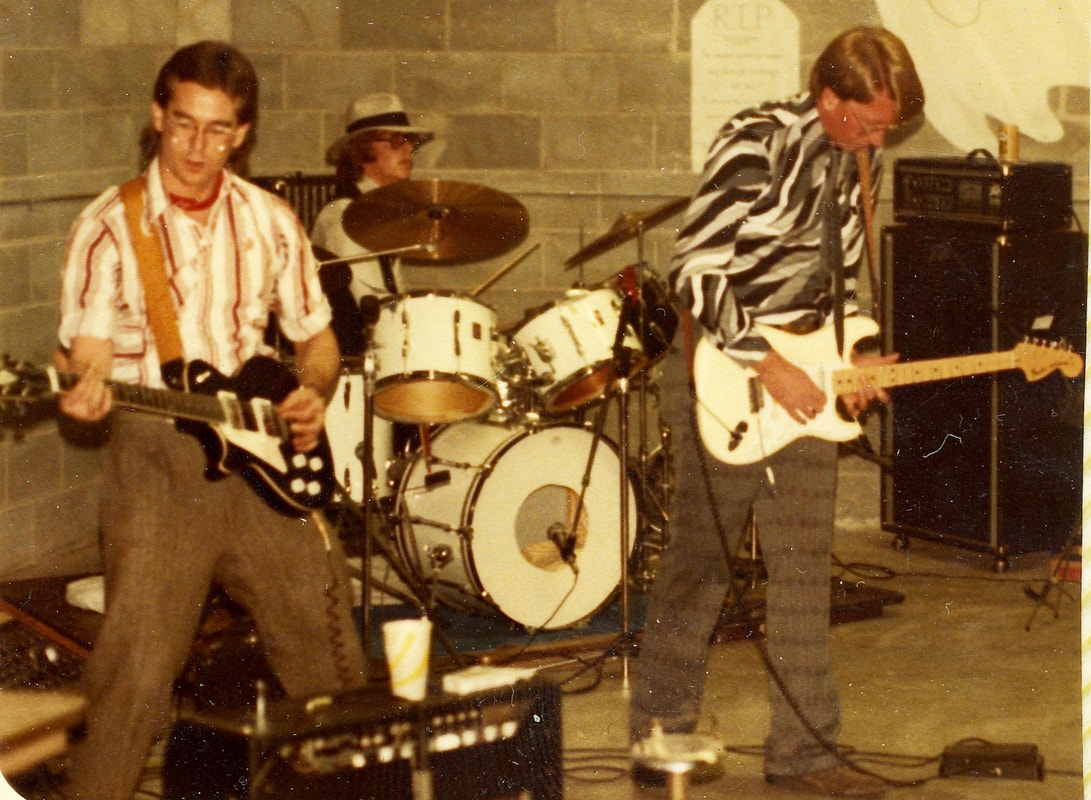


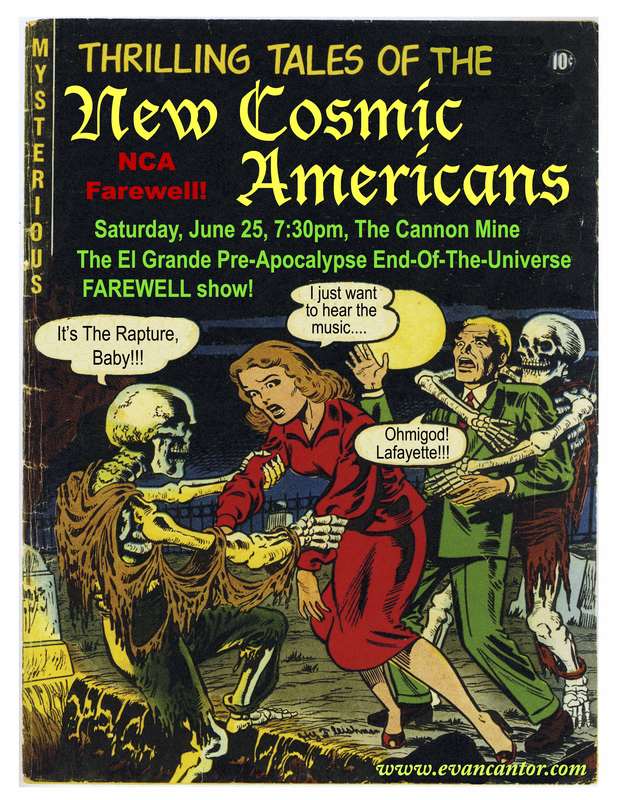
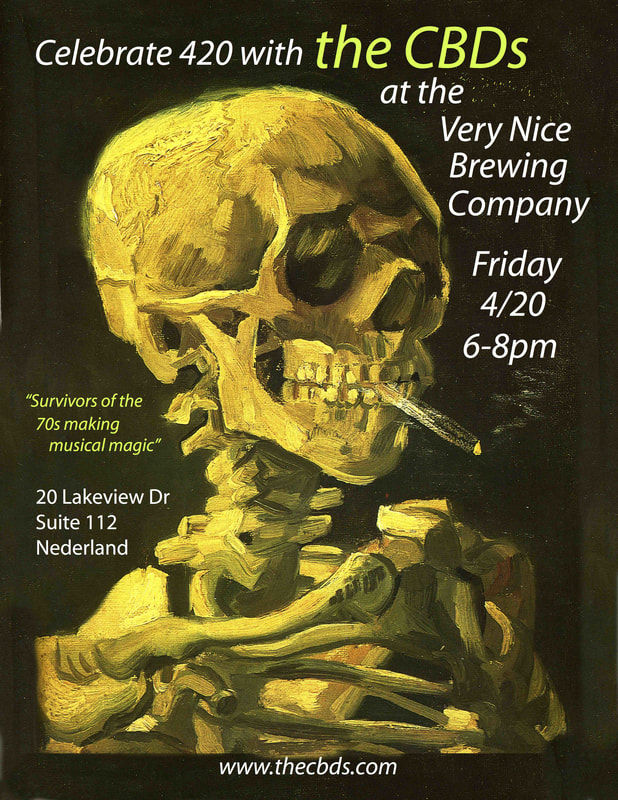
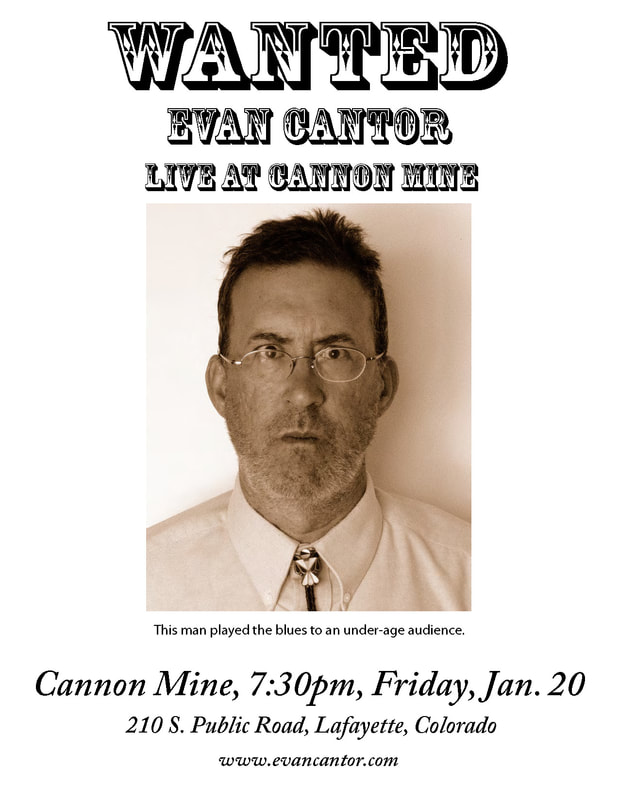
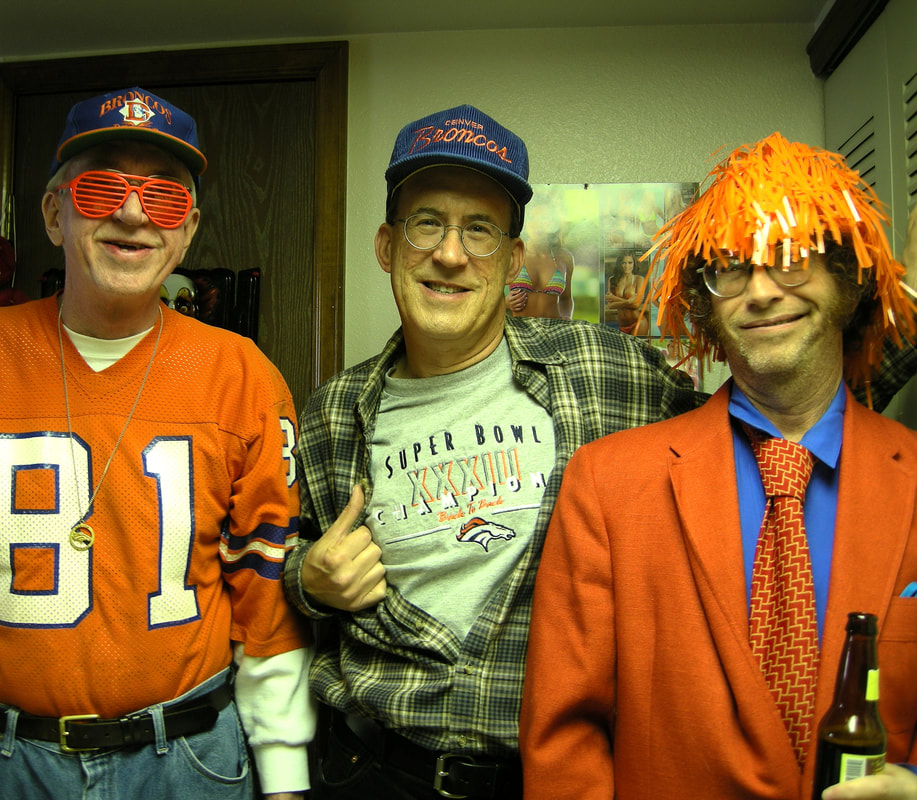
 RSS Feed
RSS Feed